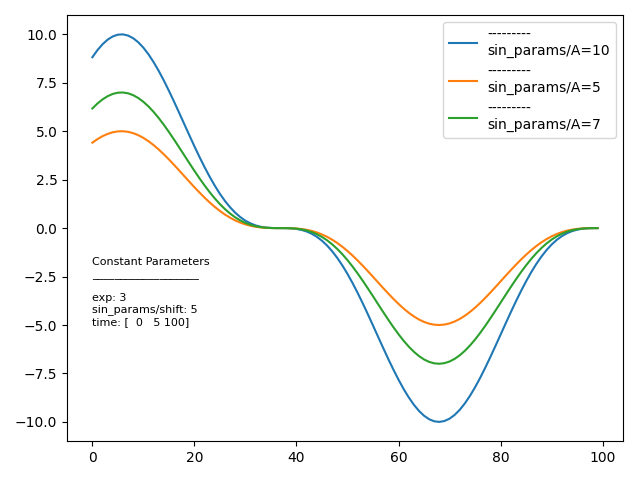ABR_Analyze: A repository with helper functions wrapping the hdf5 package. Allows for simplified saving, loading, and searching of data.
To install abr_analyze simply run:
pip install -e .
Features that visualize robotic arms require an install of abr_control:
git clone https://github.com/abr/abr_control.git cd abr_control pip install -e .
HFF5 databases can be thought of as a compressed file (.h5) that saves dictionaries. Keys, including keys for nested dictionaries, are treated as folders with the corresponding values being the data entries.
By default, abr_analyze will create a data/databases folder from the run directory to store databases. This directory can alternatively be set on instantation of a DataHandler with the <database_dir> parameter.
To set the default value to avoid passing a folder in on init, update abr_analyze/paths.txt to have the full path to your save directory following the <database_dir:> entry.
Instantiate a database:
from abr_analyze import DataHandler database = DataHandler('database_name')Save Results:
my_results = {'key1': 3, 'key2': [3, 4, 5], 'nested_dict': {'a': 3, 'b': 6}} database.save( save_location='experiment1', data=my_results }Load Data:
subset_loaded_data = database.load('experiment1', parameters=['nested_dict']) # or load all keys all_loaded_data = database.load('experiment1')
Alternatively, abr_analyze can automatically save and link results to the parameters that generated them, provided a dictionary of parameters, a dictionary of results, and a unique name for the script that generated the results with the data_logger.searchable_save() function:
from abr_analyze import data_logger
# Instantiate database to save results
db_name = "searchable_results_example"
dat = DataHandler(db_name=db_name)
# generate baseline json
params = {
"sin_params": {
"A": 3,
"shift": 5,
},
"time": [0, 5, 100],
"exp": 2,
}
# if loading from json
# with open(json_fp) as fp:
# params = json.load(fp)
# example function that generates results
# Needs to accept params dict as input and return dictionary of results
def example_results(params):
t = np.linspace(params["time"][0], params["time"][1], params["time"][2])
y = (
params["sin_params"]["A"]
* np.sin(t - params["sin_params"]["shift"]) ** params["exp"]
)
return {"t": t, "y": y}
# unique name for script that generates results
# should update name if something changes in the script that would affect results
script_name = "example_script"
# get results
print("--Getting results for baseline parameters--")
results = example_results(params)
# save in searchable format
print("--Saving baseline results--")
data_logger.searchable_save(dat=dat, results=results, params=params, script_name=script_name)
The data_logger also has a helper function for quickly generating permutations of a parameter set. These can be saved in the same searchable manner to allow for a quick comparison of results:
# helper function to quickly create some variations of our parameter set
print("--Generating parameter variations--")
param_variations = data_logger.gen_parameter_variations(
params=params, variation_dict={"sin_params/A": [5, 7, 10], "exp": [3, 4]}
)
# get results for each variation and save
print("--Getting results for parameter variations--")
for hash_id, varied_params in param_variations.items():
print(f"\nGetting results for {hash_id}")
# pretty printing of nested dictionaries
data_logger.print_nested(varied_params, indent=0, return_val=False)
results = example_results(varied_params)
print("Saving results")
data_logger.searchable_save(
dat=dat, results=results, params=varied_params, script_name=script_name
)
Once some results and their corresponding parameter sets have been saved using data_logger.searchable_save(), the results can be searched for experiments that match a subset of parameters:
# now load all results that have these parameter values
const_params = {
"exp": 3,
}
# result keys to load
result_keys = ["y"]
# Load results that have a set of common parameters
print(f"Loading results with parameters:\n{const_params}")
results = data_logger.load_results(
script_name=script_name,
const_params=const_params,
saved_exp_hashes=None,
result_keys=result_keys,
dat=dat,
ignore_keys=None,
)
# plot the results
plt.figure()
ax = plt.subplot(111)
for hash_name in results:
# ignore const and variable params keys
if "params" in hash_name:
continue
# print(dict_nested2str(results[hash_name]))
ax.plot(results[hash_name]["results"]["y"], label=results[hash_name]["name"])
# print the values that are constant between all tests
ax.text(
0,
-5,
(
"Constant Parameters\n"
+ "___________________\n"
+ data_logger.dict_nested2str(results["const_params"])
),
fontsize=8,
)
plt.subplots_adjust(right=0.6)
plt.legend()
plt.tight_layout()
plt.show()
See the examples folder for examples covering the full range of functionality of the repository, including: plotting grids of figures, coverting figures to gifs, replaying arm trajectories in 3d plot gifs, and many more.
